The next bound of The Ubin Project
In 2021, the National Parks Board (NParks) and the Friends of Ubin Network (FUN) kickstarted discussions to chart the future direction of Pulau Ubin. Focus group discussions with FUN members were carried out from 2022 to 2023, where they shared their views on suggestions and actionable steps to develop the next bound of The Ubin Project for the next decade (2024 to 2034). The proposals are in line with the five pillars of The Ubin Project.
(1) Biodiversity Conservation
Reforestation and forest enrichment programmes
As part of the Nature Conservation Masterplan, NParks will continue its reforestation efforts in Pulau Ubin. In 2024, more than 4,500 trees of over 150 native species will be planted progressively across 18 sites. They include the Critically Endangered Singapore Kopsia (Kopsia singapurensis), Pauh Damar (Mangifera pentandra) and Sea Trumpet (Cordia subcordata).
Introduction of Cinnamon Bush Frog
The native Cinnamon Bush Frog (Nyctixalus pictus) is a nocturnal species that mainly lives in terrestrial forests and breeds in phytotelms, currently listed as Vulnerable in the Singapore Red Data Book. It can be found in the Bukit Timah and Central Catchment Nature Reserves and their surrounding Nature Parks. Species recovery efforts will be extended to Pulau Ubin in 2024, where tadpoles will be collected from mainland Singapore and introduced to suitable habitats at Pulau Ubin. This will additionally provide insights into the condition of Ubin’s habitats.
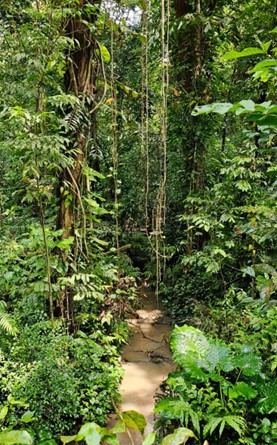
A freshwater habitat at Thomson Nature Park
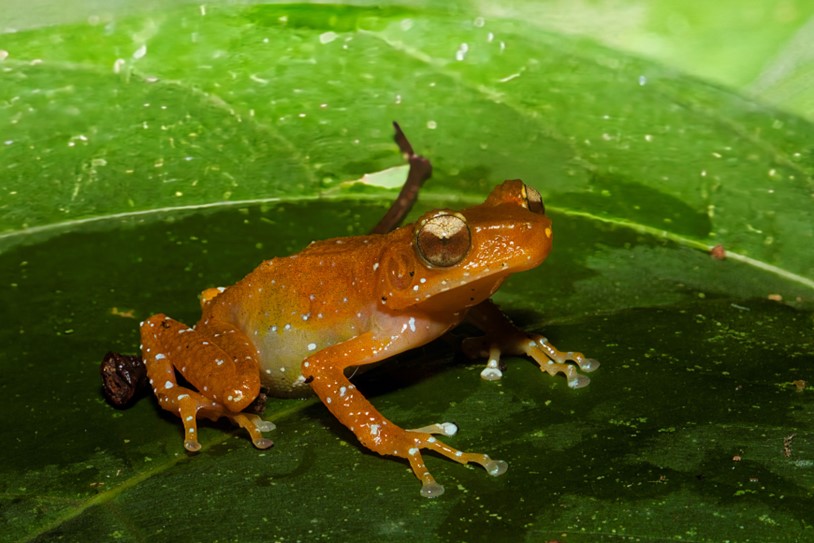
A gravid Cinnamon Bush Frog with a belly full of eggs (Photo Credit: Noel Thomas)
Mangrove biodiversity survey
A new in-depth survey of mangroves will be carried out to gather data on the biodiversity of Pulau Ubin’s mangroves, particularly those in the central part of the island which constitute the largest contiguous mangrove area in Singapore. This survey is supported by OCBC as part of their contribution to the development of the OCBC Mangrove Park at Pulau Ubin. This will help chart the course for NParks’ future conservation plans on the island and beyond.
(2) Community, Heritage and History
Establishment of dedicated Kampung House Restoration Programme
To adopt a more concerted approach to existing efforts to conserve the rich cultural heritage of Pulau Ubin, NParks will be implementing a dedicated Kampung House Restoration Programme. The programme will commence next year with the restoration of five vacant non-residential kampung houses for community and commercial use.
In an effort to retain the rustic look of the kampung NParks would be guided by URA Design Guidelines for Kampung Restorations. Click on link to find out more!
Partner Institutes of Higher Learning (IHLs) to initiate student projects on Pulau Ubin’s rich cultural heritage
To further document Pulau Ubin’s rich heritage and history, NParks intends to partner IHLs to initiate student projects on the island. The projects will aim to showcase Pulau Ubin’s rich cultural heritage and history.
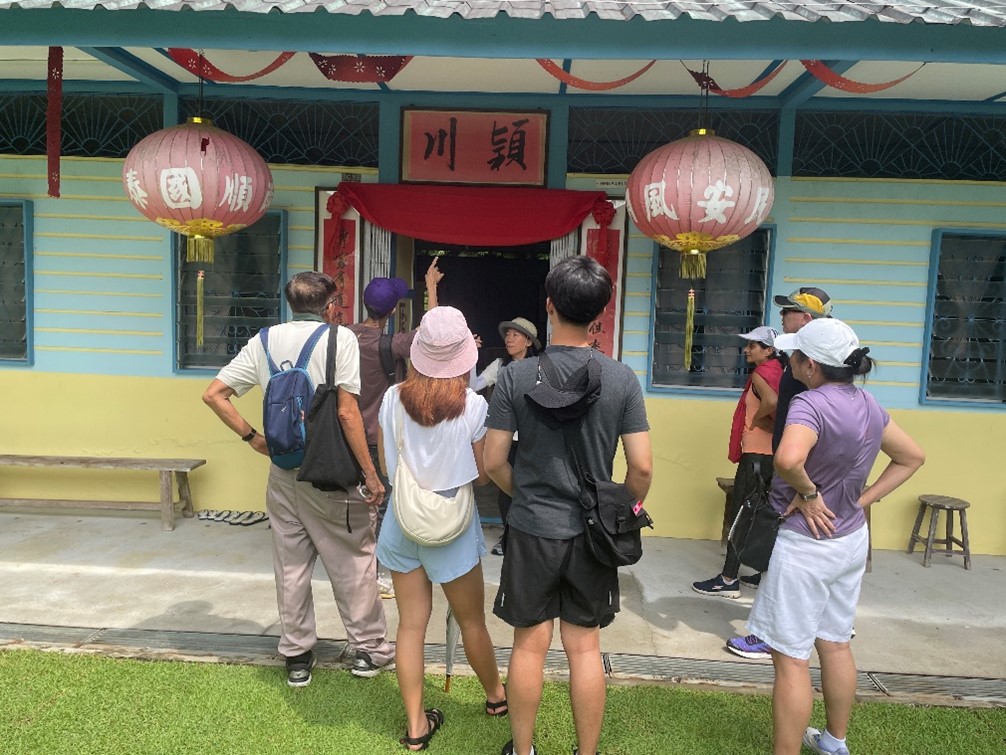
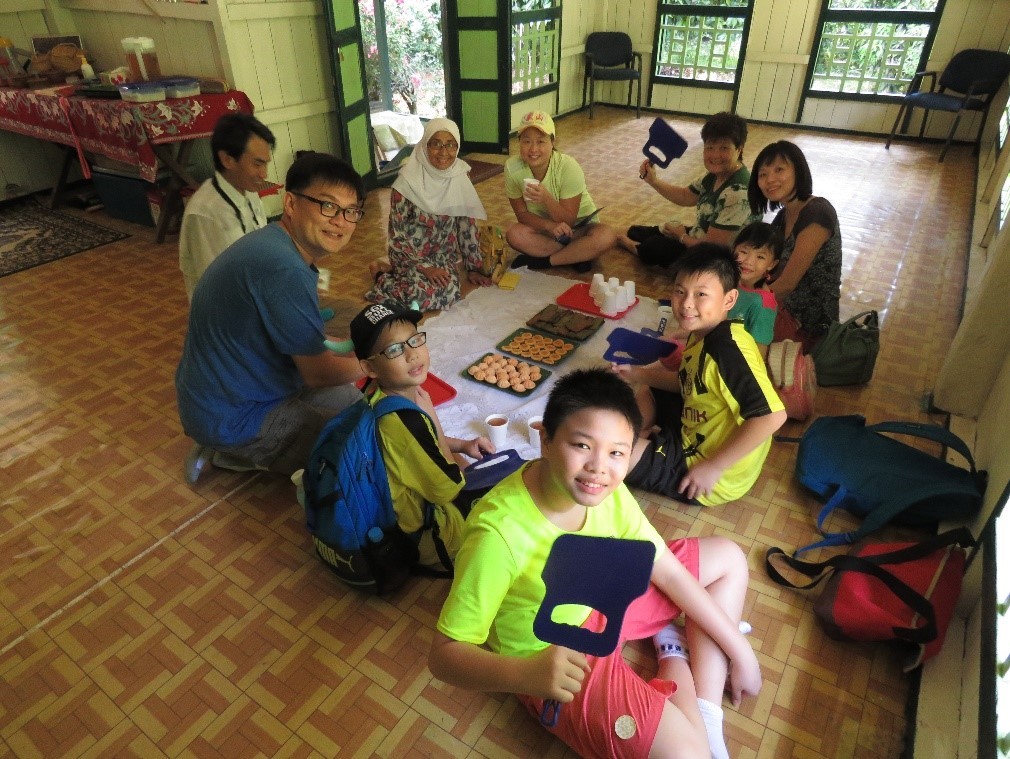
(3) Education and Research
Nurturing the next generation through the Ubin School initiative
NParks is rolling out the Ubin School initiative in partnership with Outward Bound Singapore (OBS) and with the support of various primary and secondary schools. This initiative will feature a suite of programmes based at the Ubin Living Lab that incorporate projects under The Ubin Project, involve the Pulau Ubin community, and celebrate the island’s rich natural and cultural heritage. The programmes aim to promote environmental education and stewardship among youths through multi-disciplinary programming and experiential learning.
In the long run, the Workgroup envisions conducting pilot capacity-building workshops for teachers and tapping on potential collaborators to run the programmes and benefit more students.
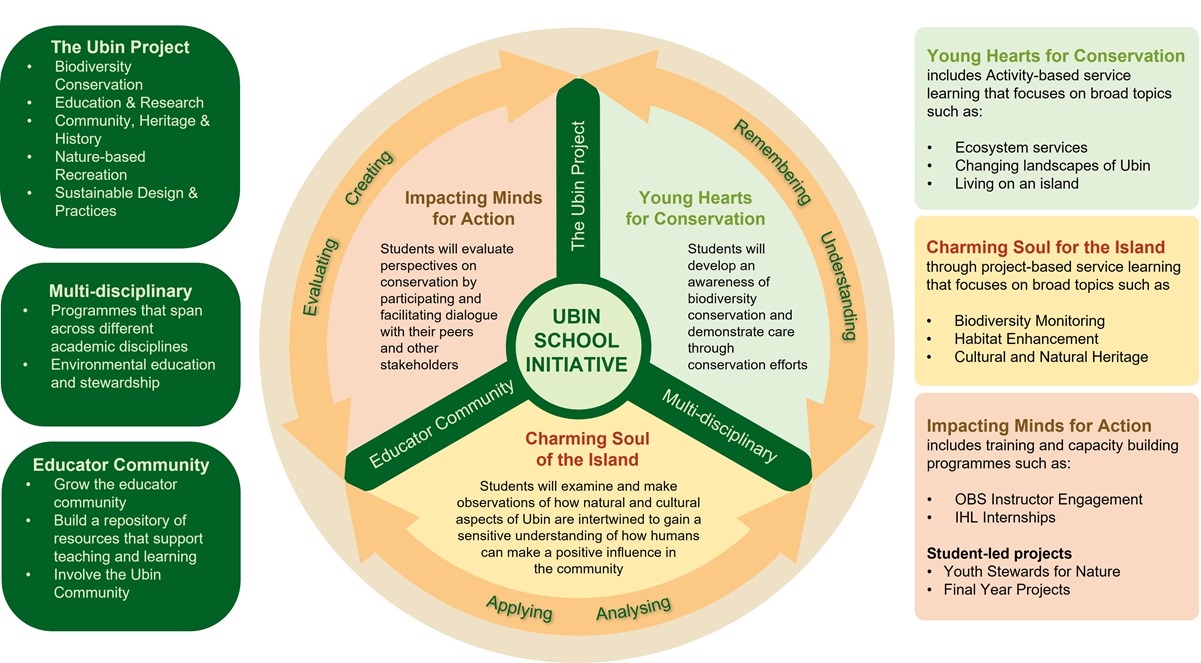
(4) Sustainable design practices
NParks will continue to work with EMA and EDP Renewables to extend the Micro-Grid beyond the main village to Kampong Sungei Durian to benefit 13 additional households. The use of solar power at Ubin will provide the villagers with a clean source of energy and lower the island’s carbon footprint, helping to contribute towards climate change mitigation.
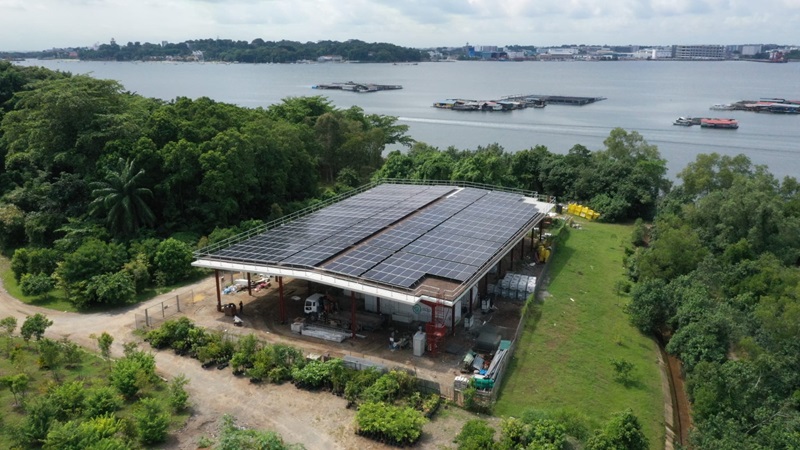
EDP Renewables APAC Greens Pulau Ubin’s Micro-grid with a Solar Green Roof and Vanadium Redox Flow Energy Storage System
(5) Nature-based recreation
NParks will continue to work with FUN to provide amenities on Pulau Ubin while ensuring they are compatible with the island’s natural environment. This includes continued efforts to upgrade and enhance interpretive displays and signage for wayfinding, public safety and enforcement. NParks will also be conducting trail improvement works on the tracks leading up to Chek Jawa Wetlands from 1 July to 31 October 2024 to provide visitors with an improved experience.
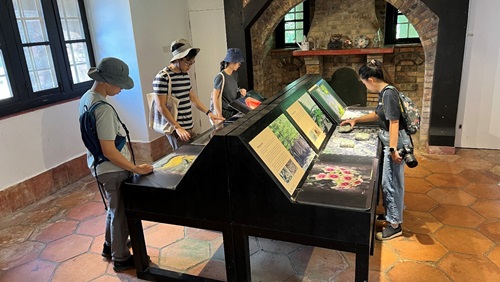
Chek Jawa Visitor Centre
NParks and FUN will work closely to continue engaging stakeholders and the general public on how best to further enhance the island’s rustic and natural charm, promoting greater community stewardship as Singapore transforms into a City in Nature.

